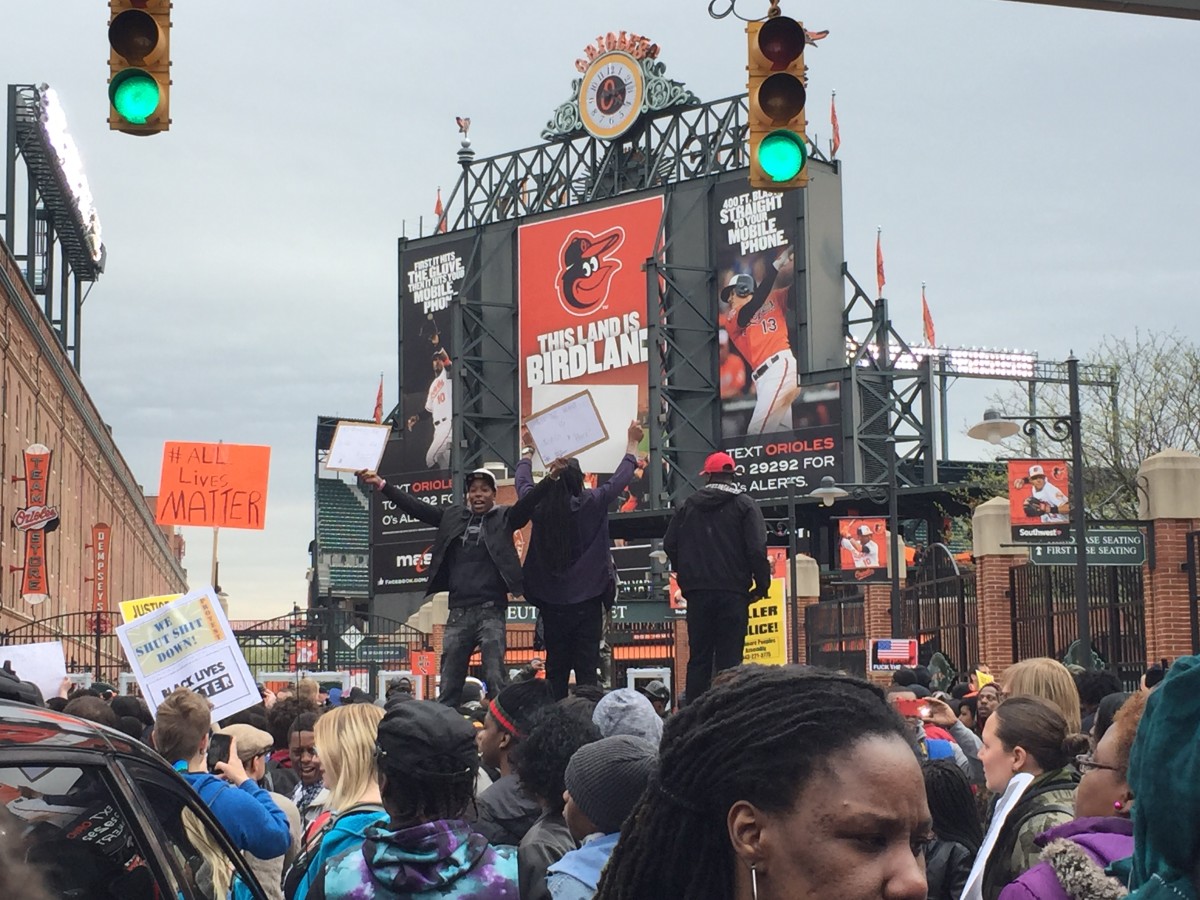Police in Baltimore used a Chicago company’s tools to track protesters on social media during the 2015 unrest that followed Freddie Gray’s death, according to new documents released Tuesday by the ACLU.
Geofeedia’s Baltimore “case study” was released amid a more widespread report from the civil liberties organization’s Northern California chapter that showed how police departments around the country used the company’s location-based social media analytics capabilities to monitor protesters.
In response to the findings, social media platforms including Facebook, Twitter and Instagram cut off Geofeedia’s access to their APIs — a move that will likely cripple the company, which relies on these feeds to deliver its services.
https://twitter.com/policy/status/785861128589025281?lang=en
The ACLU report states that Geofeedia “could access a flow of data that would otherwise require an individual to ‘scrape’ user data off of the services in an automated fashion that is prohibited by the terms of service.” (Which begs the question, were Twitter and co. not aware of this before? Or were they, and did they just not care until the ACLU called it out?) It also states that it’s an example of a surveillance tool “that can disproportionately impact communities of color.”
In the wake of the report, the company’s leadership and ACLU are apparently set to meet.
“Geofeedia has in place clear policies and guidelines to prevent the inappropriate use of our software; these include protections related to free speech and ensuring that end-users do not seek to inappropriately identify individuals based on race, ethnicity, religious, sexual orientation or political beliefs, among other factors,” the company said in a statement. “That said, we understand, given the ever-changing nature of digital technology, that we must continue to work to build on these critical protections of civil rights.”
https://twitter.com/geofeedia/status/786020130010587136
The document specific to Baltimore is a case study of the Baltimore County Police Department’s use of Geofeedia. Though the events took place in the city, Baltimore County police were among a number of agencies that came to the city during the period.
County Police had just renewed its contract with the company a week before the protests, the documents state. It indicates that police used Geofeedia’s capabilities to map out the location of social media posts.
Working with Detective Sgt. Andrew Vaccaro, Geofeedia “volunteered to draw perimeters around key locations, set up automated alerts, and forward real-time information directly to Vaccaro’s team via email and text,” the document states.
Police also used facial recognition technology that allowed them to arrest protesters with outstanding warrants “directly from the crowd,” the report states.
It also specifically references “increased chatter from a local high school about kids who planned to walk out of class and head to the Mondawmin Mall protest,” which touched off rioting on the afternoon of April 27, 2015. Vaccaro is quoted as saying Baltimore police “intercepted the kids” with “backpacks full of rocks, bottles and fenceposts.”
Authorities were also monitoring the protests from the air.
The Baltimore Sun previously reported that police in Baltimore, Anne Arundel County, Howard County and Laurel also use the service.
Along with police, Geofeedia said it works with a wide range of clients including media organizations, marketers, schools and sports teams. The software was also used to assist during natural disasters like Hurricane Matthew, the company states.
Report: Police worked with social media company to track protestors during unrest







